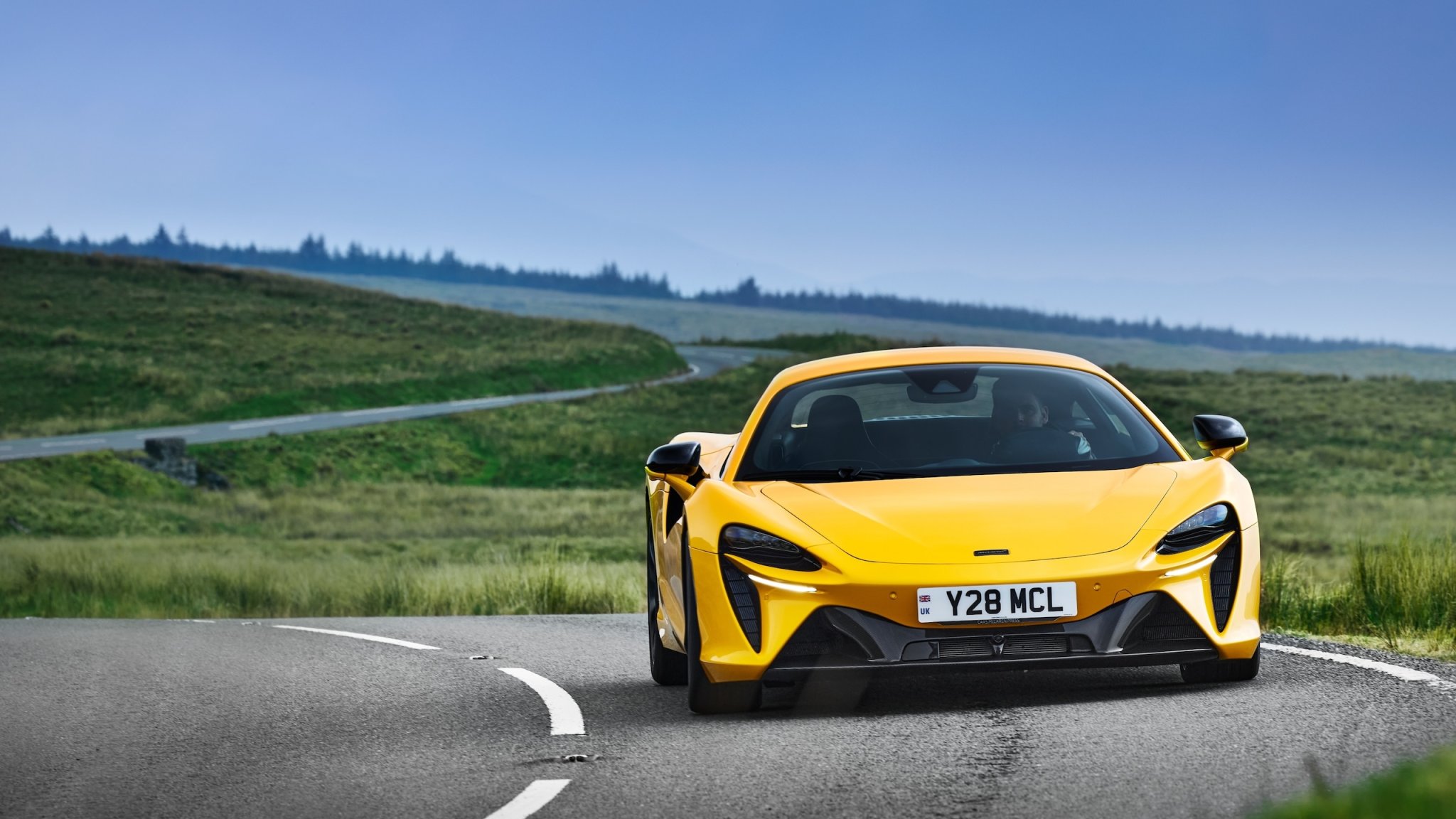

McLaren is looking for a buddy. In an effort to reach profitability, which the British marque hasn’t achieved in a few years, McLaren is shifting its focus toward value instead of volume. Also part of the strategy is potentially creating a new “lifestyle-oriented” product in the form of a four-seater sports car or SUV. But it’ll need some help.
In an interview with Automotive News, McLaren CEO Michael Leiters laid out the groundwork for increasing revenue. Leiters, who joined McLaren in 2022, explained that a significant obstacle—the company’s complicated equity structure—is now out of the way. Mumtalakat, a Bahraini sovereign wealth fund, took 100% control of McLaren in March.
“But you can imagine that a sovereign wealth fund doesn’t aim to own 100% of an automotive company,” said Leiters. “They want to be an important investor in our company, but it would be good to have a financial/technology partner to unlock the full potential.”
According to Leiters, that “full potential” target, though, would require additional outside support. McLaren could continue to be wholly independent, producing supercars as its core product. Leiters said scarcity and exclusivity are needed if they’re going to raise prices. No one wants to pay top dollar for a commodity. Currently, the average McLaren selling price is about $310,000 (240,000 British pounds).
However, if the brand wants to make more money (and who doesn’t?), it’ll have to expand its lineup. That means, yup, another high-performance SUV for those with ultra-deep pockets. Or a two-door, 2+2-type grand touring sports car. Or maybe even both. But it doesn’t want to go down that road alone.
“This is a heavy investment, and it’s not only about the investment,” said Leiters. “It’s also easier to get that with a partner that already has a platform or technologies. This is even more profitable.”
Before setting up McLaren on any blind dates, the Brit has a type: someone who is looking for a long-term commitment, is an expert on in-car technologies, and can nerd out on aerodynamics and carbon fiber. Oh, and any potential suitors can’t be looking for a project to “fix.”
“I want to do my own vehicle dynamics, my own lightweighting, my own aerodynamics,” said Leiters. “Whatever we will do, it will remain a true McLaren product.”
If you’re gonna swipe right, don’t be looking to dim its shine. So, who does Leiters have in mind? The McLaren boss previously worked at Ferrari and Porsche. The Italians and Germans certainly know performance, but how much freedom would they be willing to give another performance brand, even if a partner, on dynamics and tuning? Leiters is not opposed to partnering with a Chinese brand either because what the “industry has done in the last five years is really impressive.”
A Chinese partner might not be a bad decision. [Ed. note: Title of my autobiography. -CT] There is already an established industry that prides itself on low costs but highly advanced technologies. To be connected with the prestige that comes with the McLaren name would also benefit any Chinese brand. Geely comes to mind, but its portfolio already includes Lotus. Some of the country’s largest automakers like BYD and Dongfeng could be open to diversifying outside of the mass market as well. BYD has a strong case, having already debuted an electric supercar of its own.
Got a tip? Send it in to tips@thedrive.com